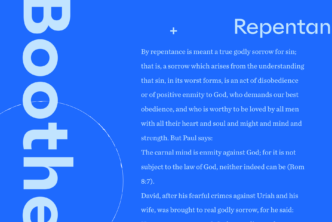Truth.
Sometimes it seems like philosophy has given up on the concept. Postmodernism tends to treat it as relative; poststructuralism tends to treat it as an attribute of language, not reality.
That’s why it’s so refreshing to read a philosopher who sets out to build a framework for proving what’s true: Aristotle.
3 Rules of Thought
Aristotle wrote on everything from biology to poetry to rhetoric, but he’s best known for his meticulous work on logic. In the Organon (six of Aristotle’s core texts—Categories, On Interpretation, Prior Analytics, Posterior Analytics, Topics, and Sophistical Refutations) and the Metaphysics, Aristotle developed the classical Three Rules of Thought, without which even basic communication would be nearly impossible:
- The law of identity: every thing is the same as itself and different from other things. A is the same as A; A is distinct from B.
- The law of noncontradiction: two or more contradictory statements cannot both be true in the same sense at the same time. If we claim that x equals 1 and that x also equals 2, something has gone wrong.
- The law of the excluded middle: either a statement is true or it’s false.
If these laws seem totally self-evident, that’s part of their force. From Euclid and Pythagoras on, most technical proofs have started with universally accepted premises (axioms) and moved through valid steps (premises) to reach nonobvious conclusions. The Rules of Thought sound fundamental enough to be axioms, but they’re really rules of inference: principles that govern whether a move from one premise to another is valid. That means that, in the Aristotelian framework, they’re raw tools we can use to determine what’s true.
(By now it’s becoming clear why, agree or disagree, Aristotle can’t be avoided: if you try to demonstrate that something’s true, you’re almost certainly taking part in Aristotelian logic.)
What does this mean for theology?
Christianity is concerned with truth; it’s little wonder that Aristotle’s framework has proved influential.
Aristotle was also the one behind the deduction and induction you kind of remember from high school. A refresher: deduction moves from the general to the specific; induction moves from the specific to the general. So if Aristotelian induction lets you work from an specific observed aspect of the world to a general claim about science, it also lets you work from a specific observed aspect of the world to a general claim about God. (In that sense, the watchmaker argument—that the universe, like an intricate watch, testifies to the hand of a creator—is inductive.) If Aristotelian deduction lets you work from an axiom to a specific claim, it lets you work from the Bible to the particulars of theology.
Aristotle’s main influence on Christianity has been through Thomas Aquinas, who convinced the church that Aristotle’s methods were preferable to those of Plato. Aquinas established five famous proofs of God’s existence, and three in particular build on Aristotle’s logic:
- First Mover, which comes directly from Aristotle’s Physics: If all motion is caused by some prior force, and if the world is filled with motion, where did the first motion come from? (From God.)
- First Efficient Cause: If all situations have a cause, what do we make of the cause at the start of it all? (It is God.)
- Necessary Being: Not all things in the world are merely possible; some are necessary. A necessary thing can be caused by another necessary thing, but that introduces the infinite regress invoked by the previous two proofs; there must be something that is necessary in itself. (That thing is God.)
These ancient arguments remain influential and popular with apologists like William Lane Craig. Of course, apologetics is more than just logic. It’s also rhetoric—argument—and Aristotle has much to teach on that as well . . . but we’ll leave that for another post.
Learn from the father of logic
Aristotle wasn’t a Christian thinker, but his works are tremendously important. Noet offers Aristotle’s core arguments in the 12-volume Works of Aristotle Collection—the Organon, the Metaphysics, and more. What’s more, the Noet editions let you study in ways that the ancient Greeks could only dream of: when Aristotle argues against Plato, you can jump directly to Plato’s arguments; when modern apologists cite Aristotle or the Three Rules of Thought, you can see the evidence for yourself.
If you’re interested in truth and logic, this collection is a gem.
Understand the building blocks of logic: pick up the Works of Aristotle Collection today.
Or get an even better deal: go with Noet’s Ancient Philosophy Bundle, which also gives you the dialogues of Plato.





